Reducing the digital gender divide: Our takeaways from CSW67
Our Director of External Affairs reflects on contributing to CSW67.

Sian Hawkins, Director of External Affairs, reflects on contributing to the sixty-seventh session of the Commission on the Status of Women (CSW67)and its Agreed Conclusions which, for the first time, focus on women’s rights in the context of innovation, technological change, and education in the digital age.
Reducing the digital gender divide and promoting the design and use of gender intentional technology to progress the advancement of gender equality has long been an area of work championed by the Foundation. The Foundation welcomes the agreed conclusions from CSW67 which highlight the profound role that technology can play in creating innovative solutions to reducing the gaps in education, health care, decent work and social protection more broadly.
I was lucky enough to be invited to attend CSW67 to speak at an event hosted by the Commonwealth Secretariat and the International Trade Centre. The event was exploring bridging the digital gap for female owned businesses and how this is work is crucial driver of women’s economic empowerment and trade-led growth.
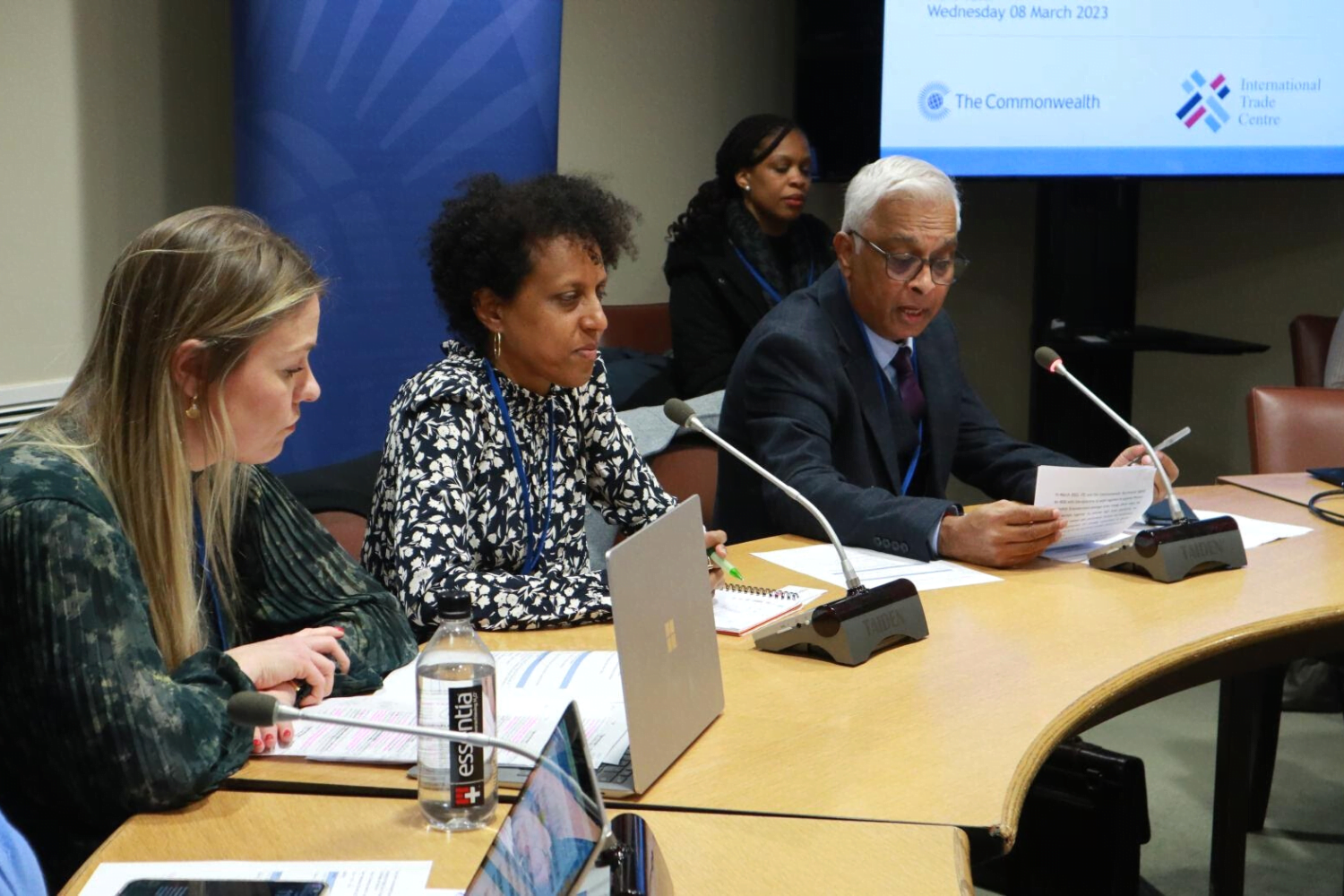
We had a rich discussion about the crucial need to create digital products and tools that are specifically designed for women entrepreneurs, supporting them to start and grow businesses. There was strong agreement on the need for more private sector engagement in this work, in order to leverage the opportunity that cross border trade and ecommerce provides for women-owned businesses in low and middle income countries.
Digital Innovation as a tool for change
Technological and digital innovation is deeply embedded in the history of the Foundation. Since its inception, the Foundation promoted the importance of using digital technologies as a tool for education and more broadly as a way to reduce the digital gender gap. So we particularly welcome the call from Commission for member states to ‘develop digital tools and services to address the needs of all women and girls, across sectors and geographies, especially for their education, health and economic empowerment’.
All five of the Foundation’s current programmes for women entrepreneurs in low and middle income countries use digital technology for delivery. For example, our multi-award winning App, HerVenture provides fantastic bite-sized learning content, including quizzes and swipe-cards, to deliver key entrepreneurship skills in a manageable and digestible format.
Moreover, we are intentional about taking a gender lens to the design of our services, so that they better meet women’s needs. So, for example, HerVenture is flexible, self-paced, data light and can be used offline and it is free to download. The curriculum also helps to boost women’s digital literacy and skills by covering topics such as ecommerce, digital marketing and mobile money.
We recognise that digital tools are essential for women entrepreneurs... we will continue to increase the accessibility of our digital services and create new and innovative digital services to meet women’s needs.
In our new strategy, Ready for Business, the Foundation makes a further commitment to boost our digital services and broaden access and opportunity. We recognise that digital tools are essential for women entrepreneurs with small and growing businesses in low and middle income countries. Therefore, we will continue to increase the accessibility of our digital services and create new and innovative digital services to meet women’s needs. This is a really exciting area of work for the Foundation, giving us the scope to scale our reach and provide the most pioneering services to some of the most inspiring business women across the world.
Breaking gendered barriers and stereotypes
Whilst the opportunity is clear, we are extremely aware of the challenge that digital technology also poses. It can both reinforce the barriers that women entrepreneurs face through amplifying inequalities across social media platforms and perpetuating harmful gender stereotypes and social norms. Challenging the gender stereotypes that are holding women entrepreneurs back from success is also an area of work we will continue to prioritise through our new strategy: we have committed to using our platform to amplifying women’s voices and to challenge outdated notions of who fits the mould of a successful entrepreneur.
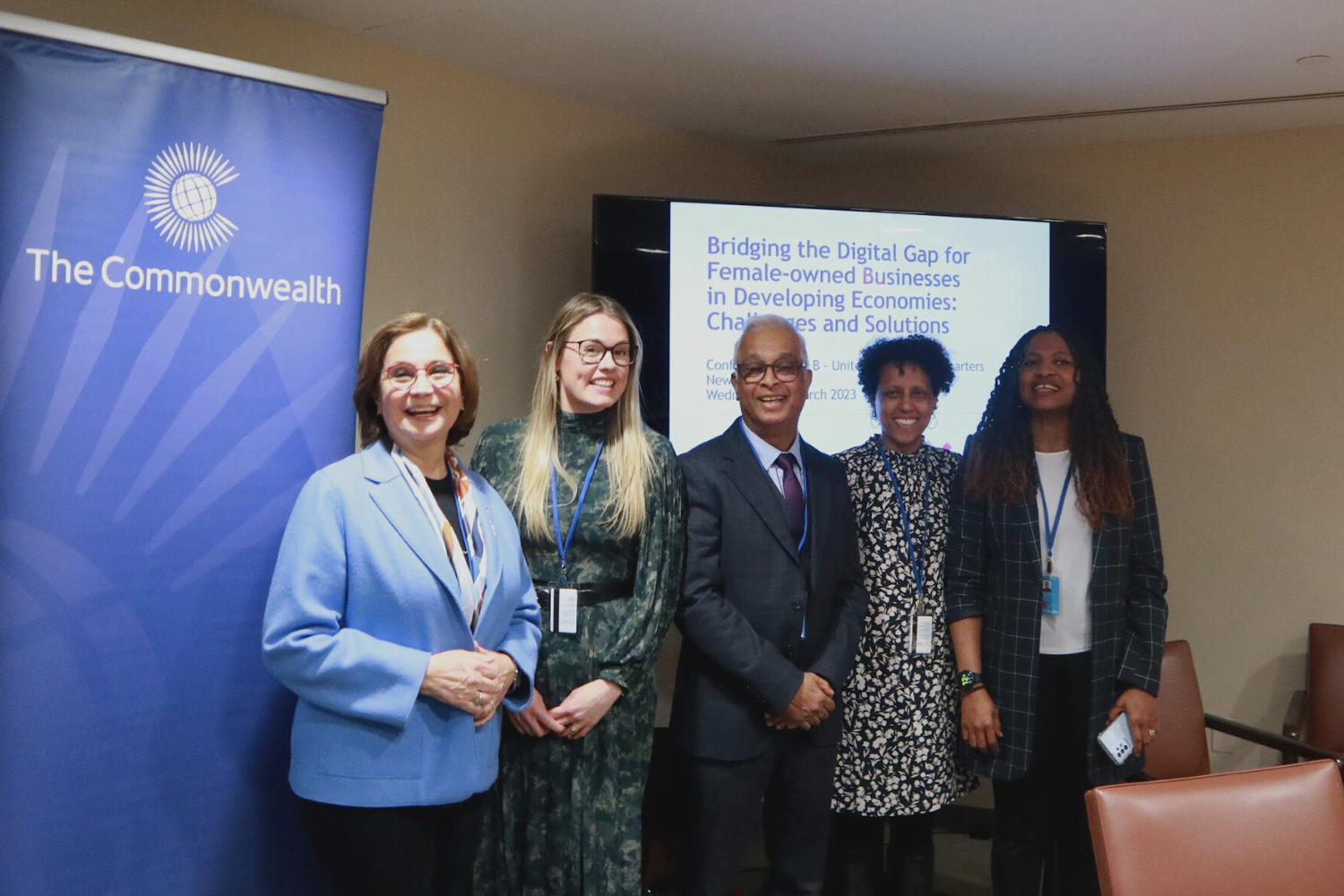
We also welcome the recognition that intersecting forms of discrimination compound on barriers to gender equality. Our recent research uncovered the frequency and origins of the types of discrimination that women entrepreneurs were facing, with one in five women entrepreneurs taking part in our research being discriminated against because of their age and 18% because of their social class. We cannot address inequalities in access to digital technologies and education without a full understanding of all of the intersecting forms of discrimination that women face, often on a daily basis. We urge CSW member states to particularly note the recommendation to ‘mainstream gender in digital policies to remove barriers to equal access for all women and girls, including those living in poverty, in rural, maritime or remote areas, with disabilities, Indigenous women and girls, migrant women and girls, and older women’.
Final thoughts
The role of solid and respectful partnerships being fundamental to progress towards gender equality and the 2030 end point of the SDGs was palpable at the convening. Meaningful and mutually-beneficial partnerships will be the cornerstone of the success of our new Strategy and are vital to our ambition to reach one million women entrepreneurs by 2030. We will be building on our existing network of local partners and collaborating with them to further localise the design and delivery of our services. This approach will improve the services and support we can provide, create better outcomes for women entrepreneurs and build more sustainability into our work.
We look forward to work with existing and new partners and colleagues on the outcomes of CSW67 and building relevant recommendations into our delivery plans for the first year of our new strategy. To find out more visit the CSW website.
CSW67 Agreed Conclusions
The Foundation is committed to working towards the agreed conclusions outlined by the Commission on the Status of Women.
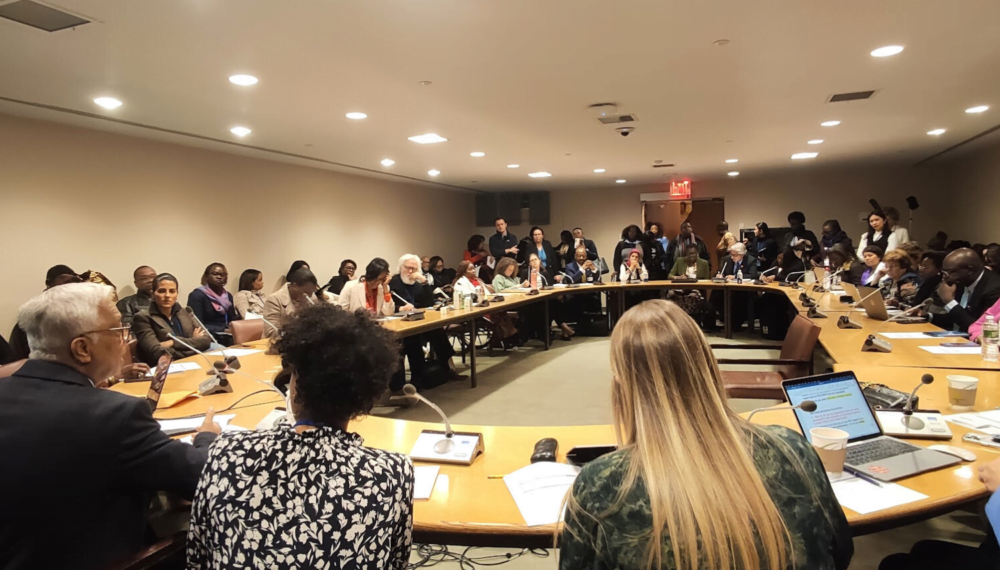
Learn more about our advocacy work...
-

Calling the Commission on the Status of Women to tackle gender stereotypes blocking women’s entrepreneurship
An overview of our high-profile CSW66 side-event with the Permanent Mission of Rwanda to the UN
Read more
-
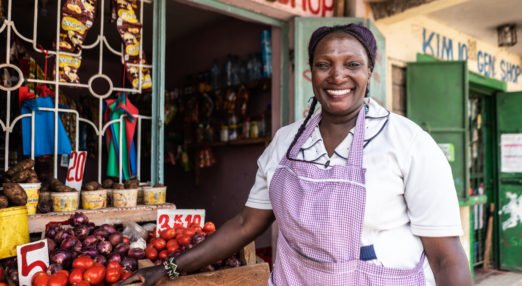
CSW66 Side-Event: Gender Stereotypes & their Impact on Women’s Entrepreneurship & Economic Empowerment
Together with the Permanent Mission of Rwanda to the United Nations, the Permanent Mission of Sweden to the United Nations and the Permanent Mission of the Philippines to the United Nations, we held a side-event for the 66th session of the Commission on the Status of Women.
Read more
-
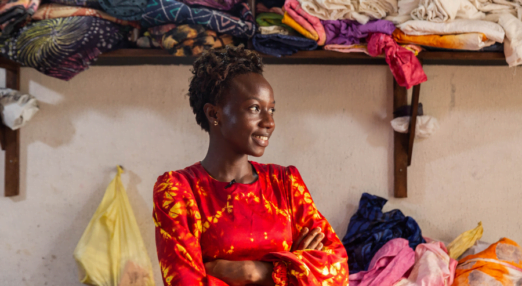
Onwards and upwards: A year of advocacy to tackle gender stereotypes
Senior Advocacy Advisor, Sini Maria Heikkila, reflects on our recent advocacy work.
Read more
